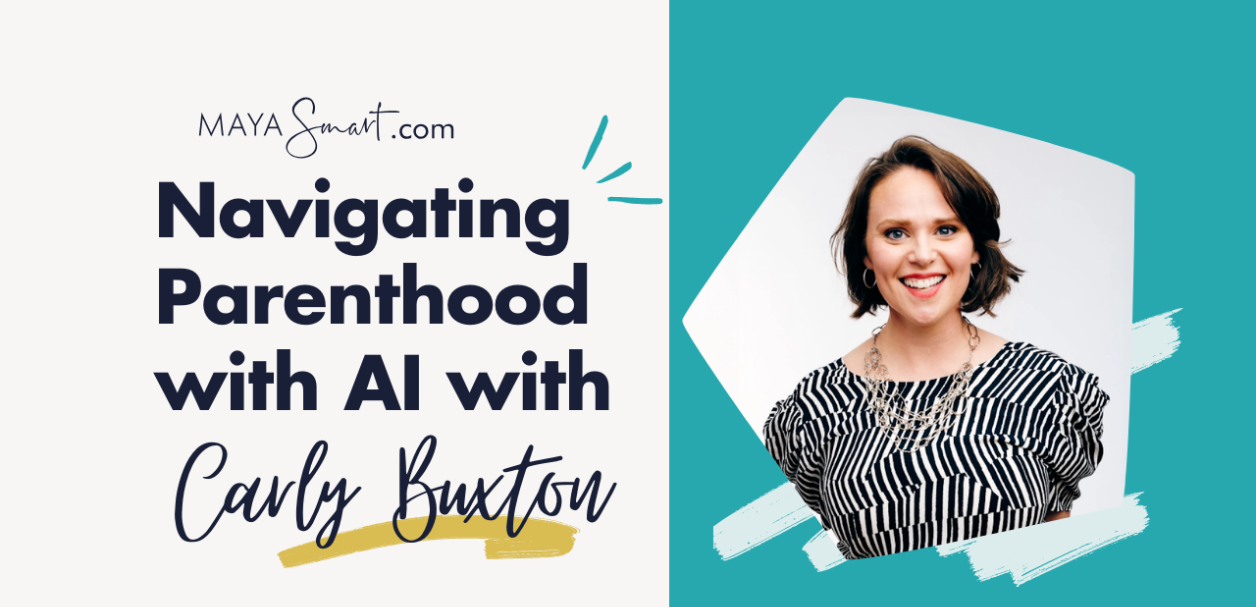Where do you turn for answers to your parenting questions, from lactation and nutrition to sleep training and self-care? Parents of young children have so many questions, and friends, family, pediatricians, and Google typically top the list of info sources. But generative artificial intelligence (AI) searches are on the rise, because of their novelty, ease of use, rapid responses, and personalization.
Ask Google a question and you’ll get inundated with page after page of search results. Ask a generative AI tool like ChatGPT a question and it’ll deliver a tidy, conversational (if not always accurate) response. The package is a bit more fun, and less overwhelming for sleep-deprived parents of littles.
And parents are using AI tools for more than just simple Q&A. They’re making product comparison charts for baby items, designing meal plans, and even generating personalized stories and illustrations. A student in my Reading Made Simple course told me he’s used ChatGPT to help him come up with simpler ways to explain things to his toddler. He types in what he wants to say and the machine tells him how to rephrase that for toddler comprehension. How’s that for a handy translation service?
Innovative AI Tools to Assist With Your Parenting Questions
There’s also lots of parent experimentation on the AI app development side as well. Tech founders and thought leaders (aka moms) are using AI in novel ways, including parsing big data sets to share relevant, actionable nuggets that would be hard and time-consuming to gather or navigate otherwise. They leverage natural language processing and artificial intelligence technology to aid parents’ decision-making and bolster quality of life.
Here are a few sites to watch:
- Reshma Saujani, founder of Girls Who Code and Moms First, has set up PaidLeave.ai to tell parents if they’re eligible for paid leave, how much money they can get, and how to submit their claims.
- Emily Oster, economist and ParentData founder, launched Zelma.ai to share state assessment data in ways parents can understand. Thanks to OpenAI’s GPT-4 language model, parents can type in questions in plain language and the digital research assistant responds with tailored text and visuals.
- Carly Buxton, founder of Nessle.com, created the AI-powered search engine to broaden parents’ networks, elevate parenting experts’ profiles, and connect the two to better support kids.
Importantly, the goal of these tools isn’t to replace human interaction with machine conversations. Rather, they’re all focused on giving parents easier ways to benefit from AI strengths—rapidly sifting through bottomless data—so that parents can get back to taking care of their little people. They aim to enhance the parenting journey, not outsource it.
How to Use AI to Reach Parenting Experts
Watch the video below to hear me chat with Buxton about how Nessle uses generative AI to filter the noise that overwhelms modern parents so they can get tailored help, not an onslaught of information.
In a nutshell, the “site offers an alternative for parents who have a question,” Buxton says. “They have a challenge and they don’t really feel like Googling or posting on Facebook and getting a million answers and anecdotes and opinions and outdated advice. We offer a place where parents can go, ask a question of our digital concierge, and we run it through an AI-powered algorithm and provide them with three suggestions of a path forward.” And, notably, all of the paths center on “talking to human beings.”
This sense of person-to-person connection was something Buxton sorely missed when having her first child in Boston, far from her friends and family in Virginia. “I was really lacking a support system and felt out of control of my own birth,” she recalls, “and I decided to dive into that entire industry and do something about it.” With a background in user research, she gravitated toward using technology as a way to connect parents with experts who offer parent support services, from coaching to support groups to other kinds of guidance.
Nessle’s still in its infancy, but a few promising elements stand out in Buxton’s approach.
- Personalization: Parents get the chance to share some info about their parenting style, kids’ ages, and ideal support expert (e.g., fairy godparent, science teacher, trusted big sibling, friend who makes me laugh) to inform Nessle’s search results. Plus, they can phrase their queries in everyday language. Think: My colicky baby just won’t let me sleep. I’ve tried everything! This freedom gives the search box the air of a confessional booth where a parent of a young child who needs to vent can offload their thoughts and worries without filtering.
- Manageable search results: The nonjudgemental algorithm processes the parent’s words to recommend just a few paths forward—people, experts, creators, or products who can help. Experts on the site offer in-person and virtual one-on-one coaching calls, support groups, courses, and more. From there, the parent can choose their next step. Search results are limited to the database of experts who’ve registered with Nessle so their strength will depend upon the match between what you seek and the experts’ specialties. Newborn care specialists outnumber tween/teen advisors, for example. As the expert count grows, though, the search results will improve in quality without overwhelming with quantity.
Watch my interview with Nessle founder Buxton to learn more about:
- How Nessle uses an AI-powered algorithm to analyze parents’ questions and match them with the most suitable experts, such as doulas, lactation consultants, or sleep coaches.
- Why Nessle prioritizes human interactions, connecting parents to professionals versus content or automated responses.
- The kinds of experts across parenting stages who are on Nessle.
Like this post? Share it!

